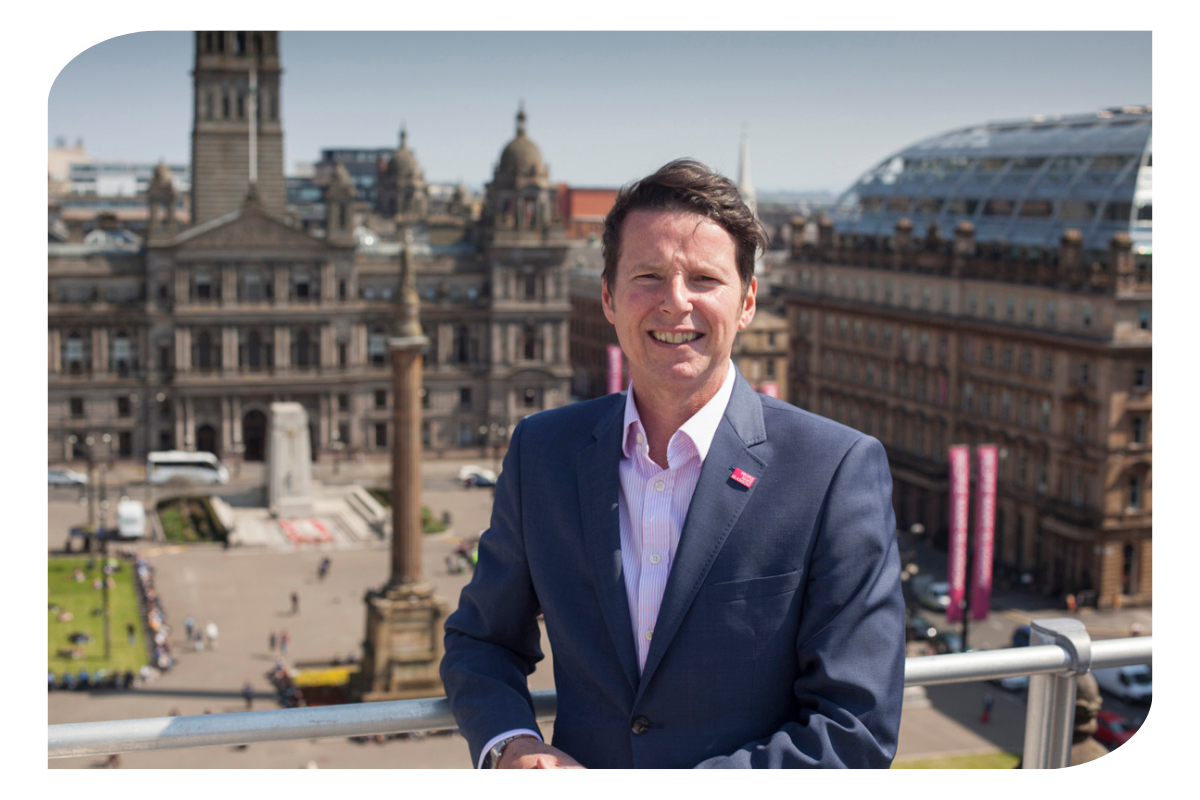
30 Jun 2021
By Richard Muir, Deputy Chief Executive of Glasgow Chamber of Commerce
With Scotland aiming to remove all its major legal Covid restrictions on August 9, the First Minister has said this would allow life in Scotland to return to “almost complete normality”.
The revised Strategic Framework states the Scottish Government “will work with business to support a phased return to office working from Level Zero onwards” – but cautiously adds “will continue to encourage a greater degree of working from home than pre Covid-19”.
While the framework outlines the benefits of homeworking in minimising the spread of the virus, it also recognises that businesses are “best placed to understand how their operations work most effectively and also understand their employees’ needs and requests for flexible working based on consultation with staff and unions”.
At a time when we are removing all major legal Covid restrictions, we would agree it is also right to trust businesses to do what is best for their staff, business operations and the broader economic recovery. The timing of office returns is critical and urgent. With only an estimated 9 per cent of workers currently back working in Glasgow city centre, as at end of May, it is vital for the economy that we are back interacting as quickly as possible.
Glasgow is Scotland’s only metropolitan region, with over 1.8 million people and one-third of the country’s jobs and business base. The city centre suffered badly from the imposition of a travel ban under Level Three rules when it lost much of its regular users. It has only regained 40% of its pre-Covid footfall – less than rival UK cities. If we are to protect as many of the city centre’s 30,000 footfall-dependent jobs as possible we must prepare for the reopening of our offices and our university and college campuses, and for the loosening of constraints on our night-time economy.
As our business community gears up and adapts, I am hearing inspiring stories. Last week, Glasgow Caledonian University ran a brilliant fashion show and sustainable fashion debate led by principal Pamela Gillies. The event included contributions from leading fashionistas Patrick Grant and Jane Shepherdson, and from Anne Ledgerwood, centre director of St Enoch Centre. The need was stated for a circular approach from all as we prepare to host COP26.
St Enoch Centre is adding 100,000sqft of retail and leisure space as part of a massive £40 million investment which will further enhance the visitor experience to the city centre. Ms Ledgerwood told delegates she wanted to attract more local artisan retailers drawn from the wealth of creative designers and manufacturers in the city.
Also last week, I met Andrew Russell, director of beauty and fragrance products manufacturer Arran Sense of Scotland. The company not only provided hundreds of thousands of pounds worth of free products to help locals, key workers and the NHS during the pandemic, but it also refocused its purpose to help the world connect with nature and to support mental wellbeing.
He is now encouraging other entrepreneurs to start-up businesses on the island. These and other business leaders are forging ahead with purpose and changing the face of their own business and the environments they are in, but they can’t do it alone.
Robert Hooijberg, professor of organisational behaviour at IMD, argued in Harvard Business Review that collaboration, innovation and creating a business culture is difficult to sustain without face-to-face interaction.
For cities to rebuild and truly thrive again, we need to have people back to the office as soon as it is safe to do so. With the tangible success of the vaccination programme, it can’t come soon enough.
This article was first published in The Herald on Wednesday 30 June 2021